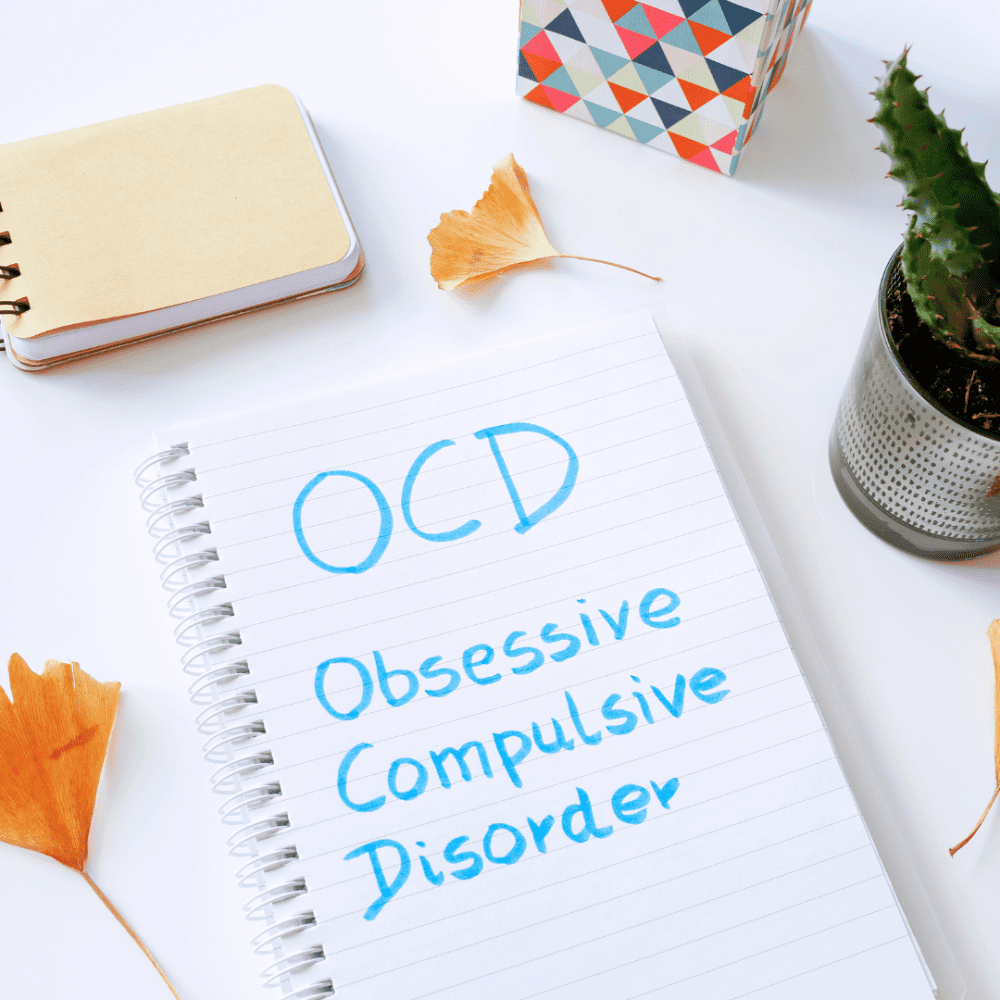OCD is a chronic, long-lasting disorder characterized by obsessions and/or compulsions that are disruptive to a person’s life. While there is no one “cure” for OCD, there are treatments that can help lessen the symptoms and make them more manageable. One such treatment is called Acceptance and Commitment Therapy, or ACT. This article will explain what ACT For OCD is, how it works, and some of its benefits.
Contents
What is OCD?
 There are many different types of OCD, but all involve having unwanted, intrusive thoughts (obsessions) that lead to repetitive behaviors (compulsions). People with OCD often realize that their thoughts and behaviors are irrational, but they feel unable to control them. OCD can have a major impact on a person’s life. It causes significant distress and interference with work, school, and personal relationships.
There are many different types of OCD, but all involve having unwanted, intrusive thoughts (obsessions) that lead to repetitive behaviors (compulsions). People with OCD often realize that their thoughts and behaviors are irrational, but they feel unable to control them. OCD can have a major impact on a person’s life. It causes significant distress and interference with work, school, and personal relationships.
There are several different types of OCD. But most people with the disorder experience a combination of types. The four main types of OCD are:
• Checking – Repeatedly checking things (such as locks, stoves, or lights) to make sure they are turned off or in the right position.
• Contamination – Fear of contamination by dirt, germs, or other substances. This may lead to compulsive hand-washing, cleaning, or avoidant behavior.
• Hoarding – Excessive attachment to possessions and an inability to discard items. This is even if they are no longer needed or wanted.
• Rumination – Persistent thinking about a past event or worrying about the future. This may lead to compulsive behaviors such as self-checking or reassurance-seeking from others.
What is ACT?
 ACT is an effective treatment for OCD that can help people to reframe their relationship with their thoughts and feelings. This also means learning to accept them without judgment. The techniques used in the ACT can be very helpful in managing OCD symptoms. The benefits of this approach have been backed up by research.
ACT is an effective treatment for OCD that can help people to reframe their relationship with their thoughts and feelings. This also means learning to accept them without judgment. The techniques used in the ACT can be very helpful in managing OCD symptoms. The benefits of this approach have been backed up by research.
ACT is a form of cognitive behavioral therapy that stands for “Acceptance and Commitment Therapy.” In short, it helps people learn to accept the things they cannot change and to commit to taking action in areas of their lives that they can control.
People with OCD often struggle with accepting the fact that some things are out of their control. This can lead to a lot of anxiety and stress. ACT can help to lessen these feelings by teaching people how to accept what is out of their control and focus on what they can do something about.
Additionally, ACT can also help people with OCD to identify their values and then take actions that are in line with these values. This can be incredibly helpful in motivated people with OCD to make changes in their lives that are meaningful to them.
This therapy works by first helping the individual develop mindfulness skills. Once these skills are developed, the individual can then start to work on acceptance and commitment.
Techniques for ACT For OCD

There are a number of techniques that can be used in order to help you practice ACT for OCD. Here are a few of the most common and effective techniques:
1. Exposure and Response Prevention (ERP): This technique involves gradually exposing yourself to the things that trigger your OCD. This is while at the same time refraining from engaging in the compulsive behaviors that usually accompany your obsessions. This can help you to break the cycle of OCD. It can ultimately lead to a decrease in anxiety and an improvement in symptoms.
2. Cognitive Restructuring: This technique involves changing the way you think about your OCD triggers and obsessions. For example, if you tend to obsess over contamination, you may need to challenge your beliefs about germs and dirt. This can help you to see your obsessions in a more realistic light, which can ultimately lead to a decrease in anxiety and an improvement in symptoms.
3. Relaxation Techniques: Relaxation techniques, such as deep breathing or progressive muscle relaxation, can help to reduce the overall level of anxiety you experience. This can make it easier to manage your OCD symptoms and can ultimately lead to an improvement in symptoms.
4. Mindfulness: Mindfulness involves learning to focus on the present moment and accepting your thoughts and feelings without judgment. This can help you to better manage your OCD symptoms. It can ultimately lead to an improvement in symptoms.
Benefits of ACT for OCD

If you suffer from OCD, you know that the constant anxiety and repetitive thoughts can be extremely debilitating. You may have tried various treatments, but nothing seems to help. However, there is hope – a treatment called Acceptance and Commitment Therapy (ACT) has been shown to be effective in treating OCD.
ACT is a form of cognitive-behavioral therapy that focuses on acceptance and mindfulness. It teaches you to accept your thoughts and feelings without judgment and to focus on the present moment instead of getting caught up in worries about the future or past. This can be very helpful in managing OCD symptoms, as it can help you to break the cycle of anxiety and rumination.
In addition to acceptance and mindfulness, ACT also emphasizes commitment and action. This means that once you have accepted your thoughts and feelings, you commit to taking action in line with your values. For example, if you value family time but are avoiding spending time with your family because of your OCD fears, ACT would encourage you to take action and spend time with your family despite your fears.
The beauty of ACT is that it is an evidence-based treatment that has been shown to be effective in treating OCD.
Disadvantages of using ACT for OCD
ACT, or Acceptance and Commitment Therapy, is a form of therapy that has been shown to be effective in treating a variety of mental health conditions. This is including OCD. However, there are some potential disadvantages of using ACT for OCD. These should be considered before beginning treatment.
One potential disadvantage is that ACT can be challenging to implement with certain types of OCD. For example, if your OCD is characterized by excessive hand-washing or cleaning, it may be difficult to find a way to practice accepting the presence of dirt and germs without engaging in compulsions.
Another potential disadvantage is that ACT may not be as effective as other forms of CBT for treating OCD. This is because ACT focuses on acceptance rather than change, and some people with OCD may find it difficult to fully accept their symptoms.
Lastly, ACT can sometimes be a bit too challenging for people who are struggling with OCD. If you find yourself feeling overwhelmed by the process of learning to accept your symptoms, it may be helpful to seek out a different form of treatment.
Alternatives To The ACT For OCD
 There are a number of different approaches that can be taken when it comes to treating OCD. While the ACT approach is one that is gaining in popularity, there are still some people who prefer other methods. Here are some of the alternatives to the ACT approach for treating OCD:
There are a number of different approaches that can be taken when it comes to treating OCD. While the ACT approach is one that is gaining in popularity, there are still some people who prefer other methods. Here are some of the alternatives to the ACT approach for treating OCD:
Cognitive Behavioral Therapy: Cognitive behavioral therapy (CBT) is a type of therapy that focuses on helping people to change their thinking patterns and behaviors. CBT has been found to be effective in treating a number of different mental health conditions, including OCD.
Medication: Medication can also be used as a treatment for OCD. There are a number of different medications that can be used to help reduce the symptoms of OCD. These are such as antidepressants, anti-anxiety medications, and antipsychotics.
Self-Help: Self-help methods can also be used to help treat OCD. There are a number of different self-help books and resources available. There are also many self-help techniques like eating good food, exercising, giving time to yourself, meditation, etc that can surely help you.
Conclusion
If you’re living with OCD, the ACT for OCD may be a helpful treatment option for you. This approach uses mindfulness and acceptance techniques to help you deal with your obsessions and compulsions in a more effective way. The goal is not to eliminate your OCD symptoms but to learn to live with them. It is in a way that doesn’t disrupt your life. There are many potential benefits of using the ACT for OCD. These are including reduced anxiety, improved quality of life, and greater self-acceptance. If you think the ACT for OCD might be right for you, talk to your mental health professional about whether it could be a good fit.
Hope this article was of help to you! If you are suffering from OCD, you may seek help from Therapy Mantra. We have a team of highly trained and experienced therapists who can provide you with the tools and skills necessary for overcoming OCD. Contact us today to schedule an online therapy or download our free OCD treatment app on Android or iOS for more information.


